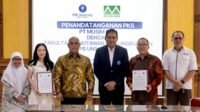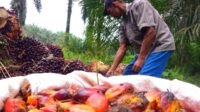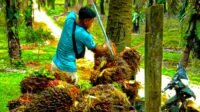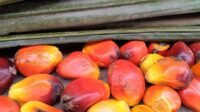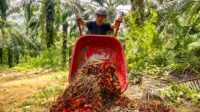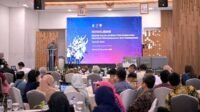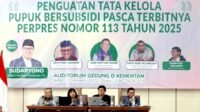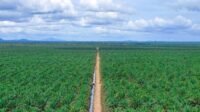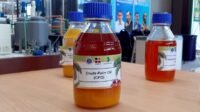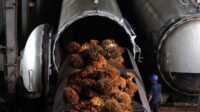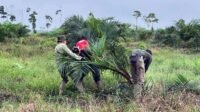PALMOILMAGAZINE, SINTANG – Independent palm oil farmers in Sintang Regency are moving closer to gaining stronger legal protection. The Sintang Regency Government, together with the Regional Office of the Ministry of Law and Human Rights (Kemenkumham) of West Kalimantan, held a harmonization meeting for a Draft Regent Regulation (Raperbup) on Independent Smallholder Palm Oil Plantation Partnerships.
The meeting, held at the Yasonna H. Laoly Conference Room of Kemenkumham West Kalimantan, was opened by Zuliansyah, Head of the Legislation and Legal Development Division. He emphasized that the regulation is designed to provide legal certainty for farmers.
“Palm oil is a valuable asset that drives regional development. But at the same time, we must ensure that smallholder plantations are protected and not overshadowed by large corporations,” he said, as quoted by Palmoilmagazine.com, Friday (August 22, 2025).
Martin Nandung, Head of the Sintang Agriculture and Plantation Office, explained that the draft regulation is a follow-up to Regional Regulation No. 6/2023. Based on 2024 data, private plantation companies in Sintang already control around 208,000 hectares, while independent smallholders only manage about 33,000 hectares.
“This regulation is expected to strengthen partnership relations between companies and smallholders, while ensuring that the welfare of local communities is safeguarded,” Martin noted.
The harmonization process was dynamic, involving representatives from the Sintang Regency Government, West Kalimantan Provincial Government, NGOs such as WWF Indonesia and Rainforest Alliance, and law students from Tanjungpura University. Discussions centered on whether the regulation should apply solely to independent smallholder plantations or also cover plasma schemes, along with its implications for companies’ obligations to develop plasma estates.
The meeting concluded with an agreement that the Raperbup on Independent Smallholder Palm Oil Plantation Partnerships had successfully passed the harmonization stage. The next steps include issuing a Harmonization Report and Completion Letter before the regulation is formally enacted.
With this legal framework, Sintang hopes to give independent smallholders stronger protection while opening fairer partnership opportunities between communities and palm oil companies in the region. (P2)






